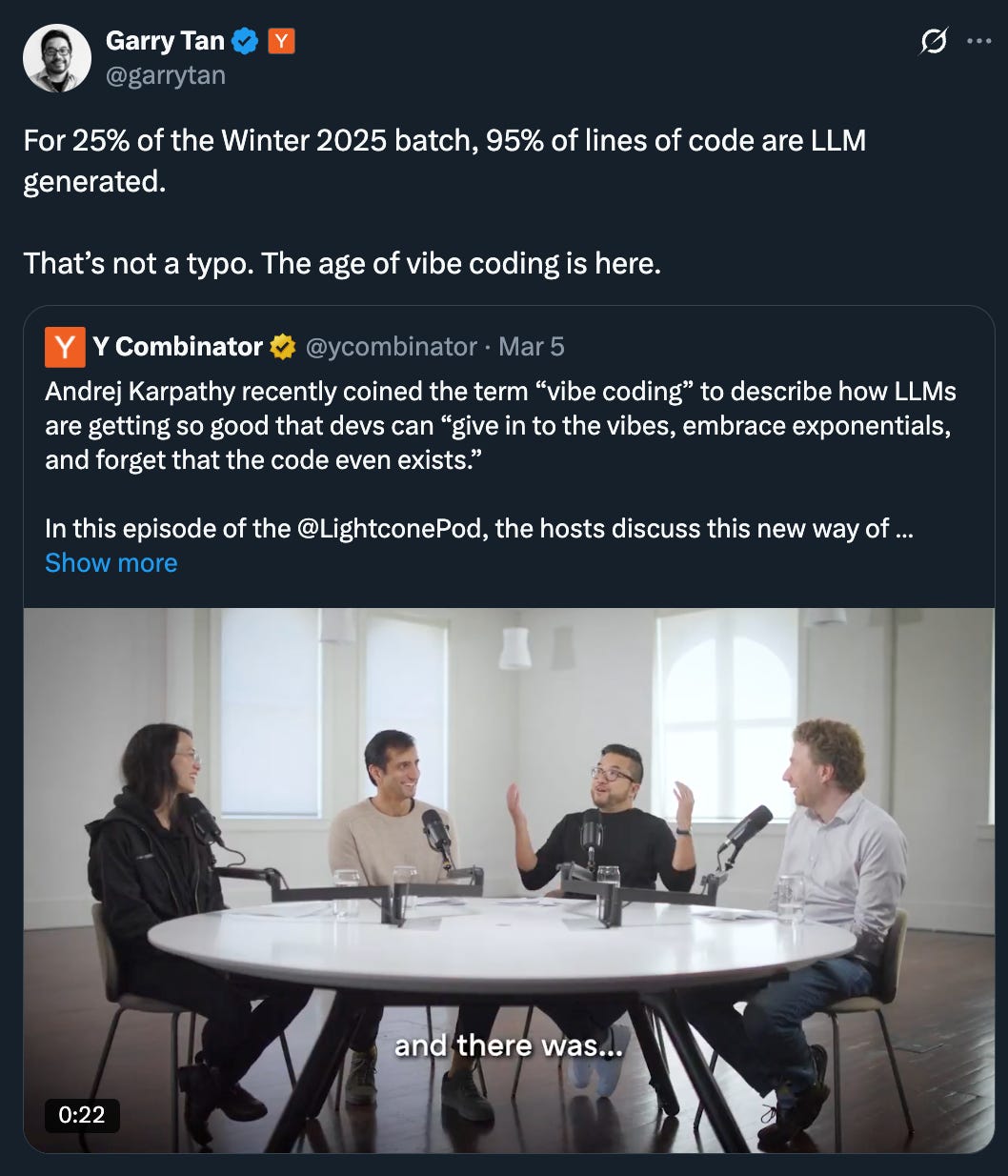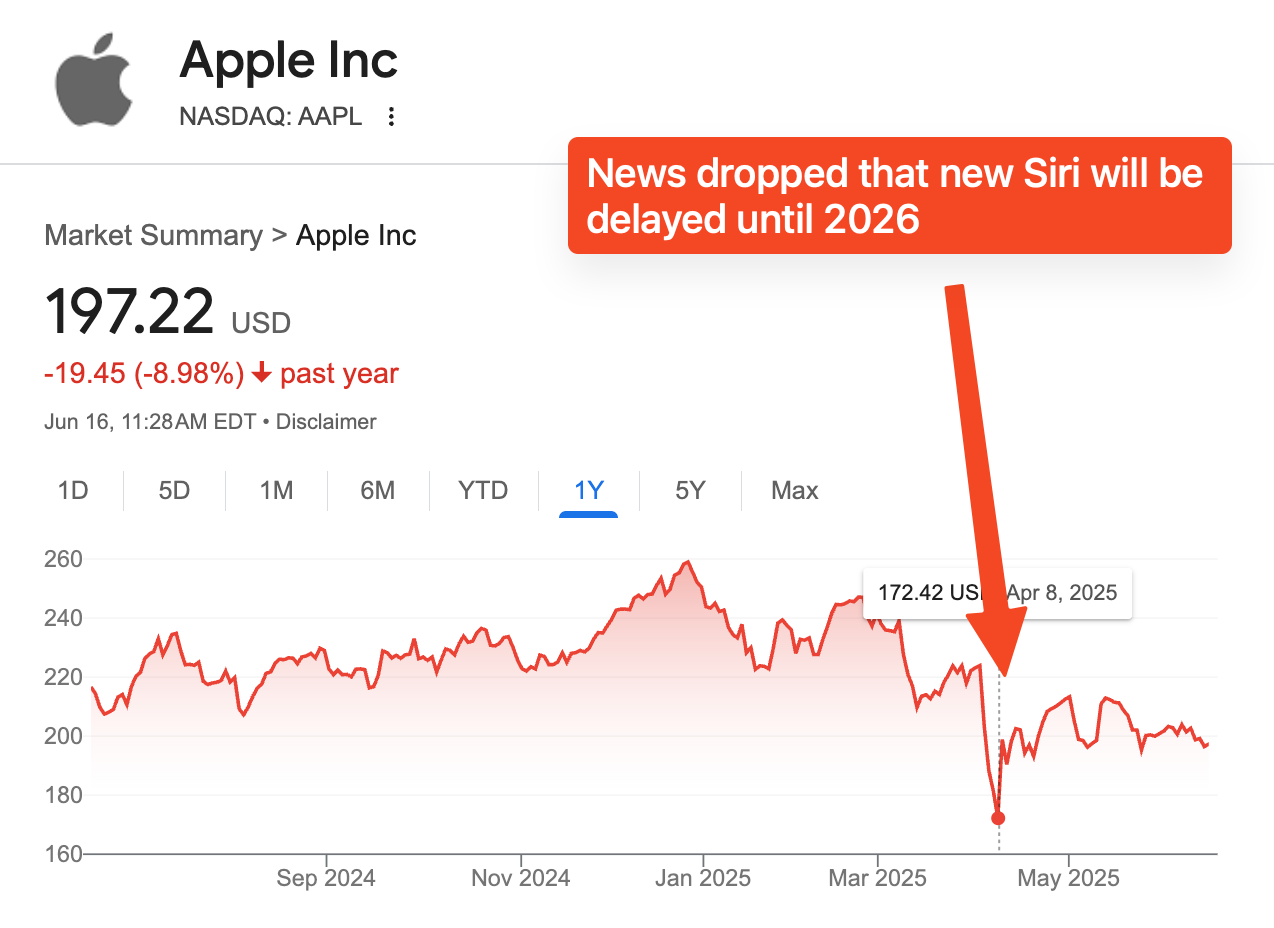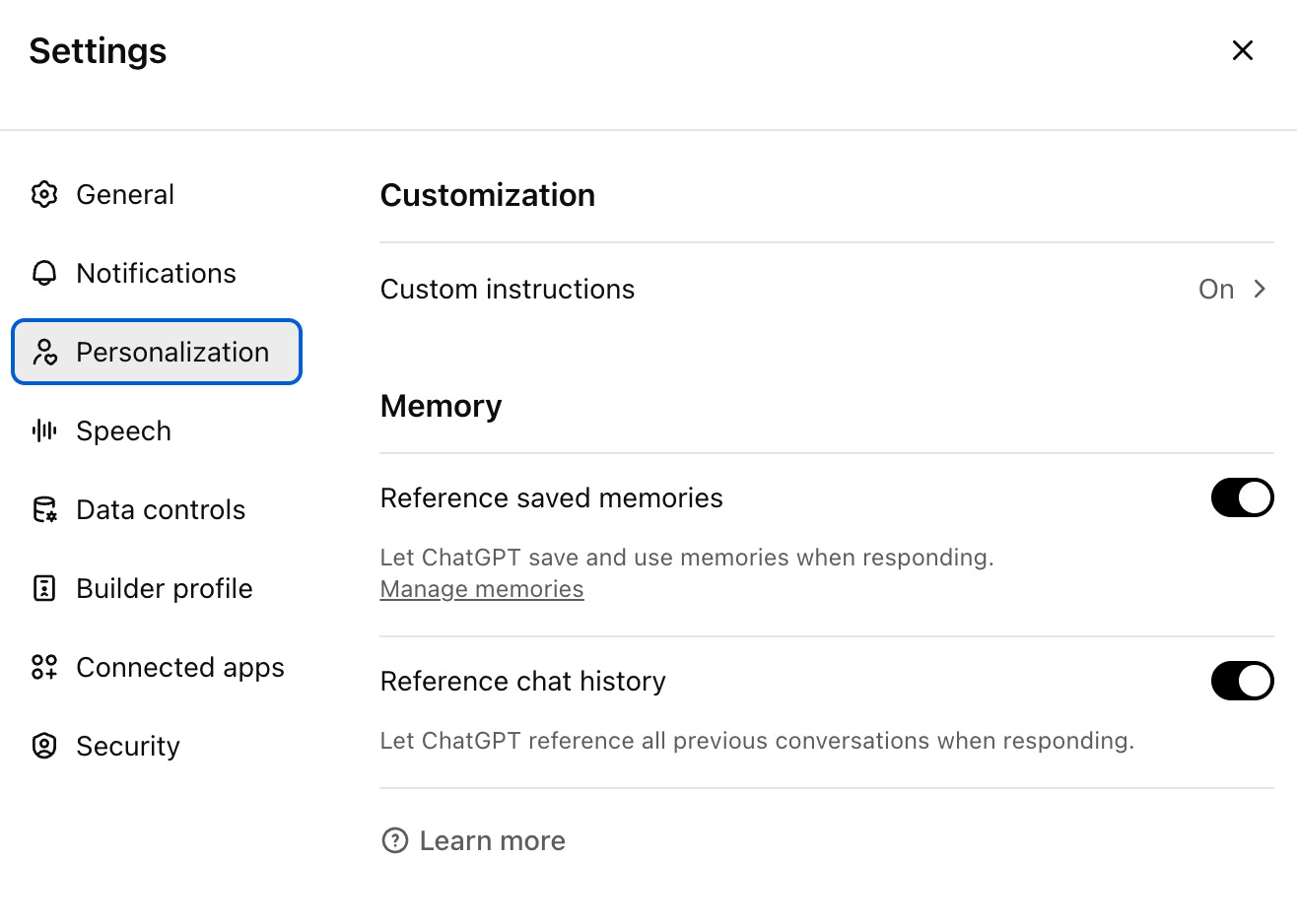If you're not first, you're last: With AI, the slow won't survive
AI has fundamentally changed the state of work, what are you going to do about it?

Five years ago, building a startup meant hiring a team of five software engineers, spending 6-12 months handwriting code, building in stealth, and launching with a splashy marketing campaign on Product Hunt.
Today, two skilled developers using AI will build the same thing in two weeks, with significantly faster iteration cycles.
It's now unacceptable to hire five people for 6-12 months when two people can do it in two weeks. The expectation of “speed” and “iteration” has been completely reset.
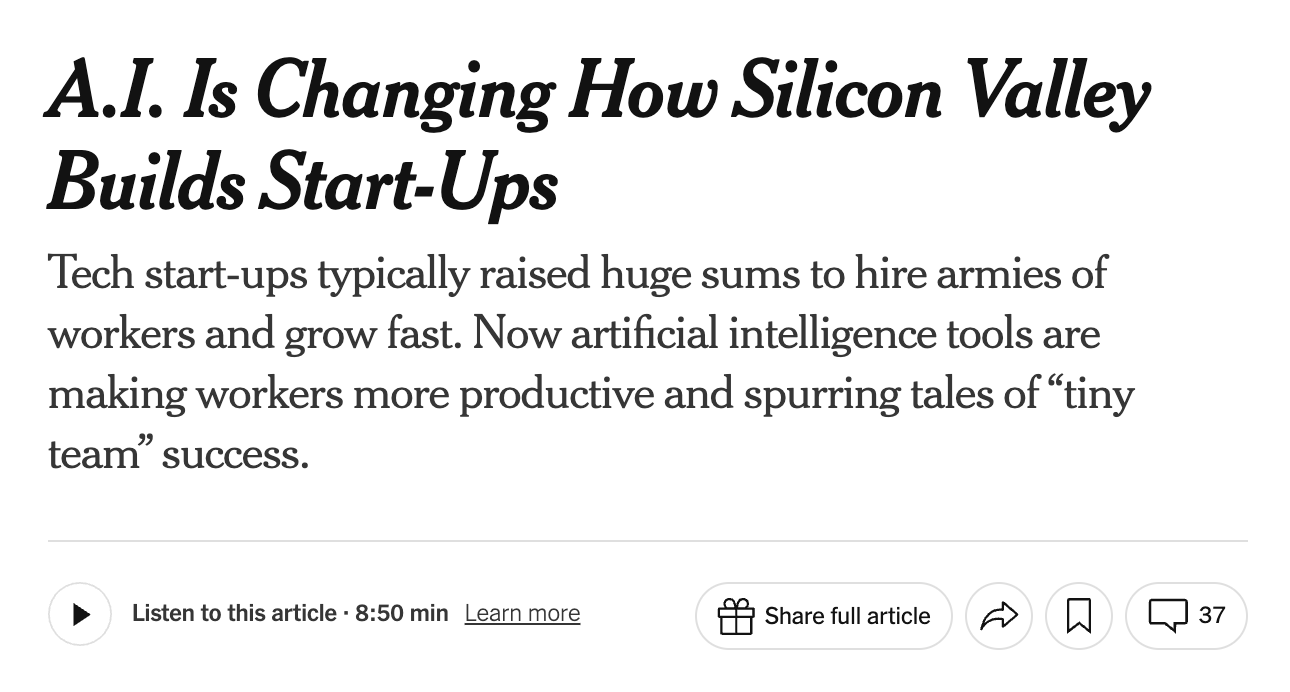
The sobering part? Those one or two developers are working harder than ever. Higher margins for companies, yes, but those two devs are having more squeezed out of them - the expectations are higher than ever.
I can’t help but think about an essay I wrote two years ago called "AI won't replace you but more will be squeezed out of you." It was a contrarian take at the time, that AI actually won’t replace people (yet), but it will force the remaining people to work harder.
It’s my most popular and most widely-shared post, even recommended by swyx of Latent Space.
Since that post, in just a short two years, it seems the AI space has gone through what feels like two decades worth of changes.
But one thing stands out above all others: the state of work has fundamentally changed, just as my piece postulated.
One thing stands out above all others: the state of work has fundamentally changed
The sobering AI truth
After being in the AI space for the past three years, attempting to stay at the cutting-edge, and going through the same employment changes myself, I wanted to share a sequel to my previous essay.
Today, we're seeing this expectation of “more from less” play out everywhere. Microsoft, Google, and Amazon have all done major layoffs over the past year. Not because they're struggling, no, but because they can do the same work (or more) with fewer people. The rate of layoffs has stayed steady, but now it's about trimming what companies call "fat."
Consider this: Do you think FAANG companies are laying people off so they can move slower?

Garry Tan from Y Combinator recently shared that 80-90% of code written by recent YC batches is AI-generated. Companies are building faster, but the teams are getting smaller.
I'm proof of this myself. I am building a revenue-generating side project while working a full-time job at Timescale, coding at nights and on weekends. Without AI, this would have been impossible. But the paradox here is, my use of AI isn’t helping me work less, I'm actually working more than ever.
I now work both my day job and my side project, which means longer hours, not shorter ones. AI was supposed to make me work less, but instead it has enabled me to turn my ideas to reality faster.
And here's the sobering truth: if I don't work this hard, someone that works harder than me will replace me.
If I don't work this hard, someone that works harder than me will replace me.
The days of building in stealth for a year without talking to your customers? That's becoming a relic of the past (unless, of course, you're dealing with deep and novel tech, which most B2B SaaS startups aren’t). We’re seeing more and more solo founders, because AI enables them to do more without hiring or taking on funding.
Most Silicon Valley companies competing for the same piece of venture pie can't afford to move that slowly anymore. VCs are increasingly asking not just “what is your AI strategy”, but, “how is your team using AI to build faster and better?”
When expectation becomes the exception
The AI world has compressed timelines beyond recognition.
One year in AI feels like a decade. When Apple announced it would take until 2026 to upgrade Siri, people’s reactions were: “what the hell is Apple doing? How can they wait this long?”
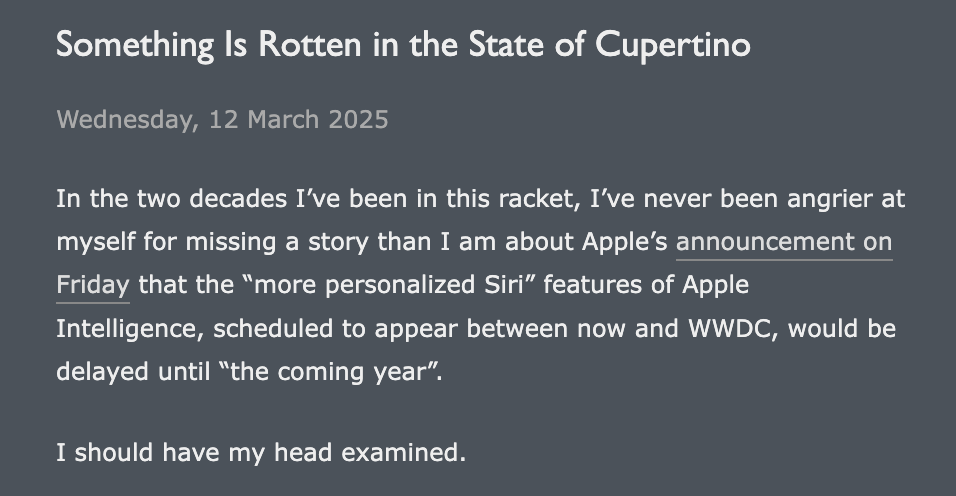
People wouldn’t have blinked an eye at a yearly release cadence in 2020; that was the expectation. Now? It’s the exception.
In a space where Anthropic, Google, OpenAI, etc, are releasing state-of-the-art models (and products) every few weeks vying to re-claim the crown for “top model” (even if just for a few days), taking a year to release AI features is unacceptable**.
** Now, I still will never bet against Apple. They do have a $150B cash war chest that allows them to buy pretty much anything they want, including talent and technology. But still. Come on Apple.
Reactions from Apple shareholders were swift.
Even being behind by two to three months now means missing 10+ state-of-the-art model releases.
Meta's Llama 4 release in April 2025 would have been a competitive model if it came out 2-3 months earlier. But because it was released later by just that amount, it was automatically worse. No one uses Llama 4, it’s a joke. So much so that Mark Zuckerberg is cleaning house, albeit with a puzzling decision of hiring… Alexandr Wang to lead efforts, the founder of the glorified sweatshop Scale AI, currently battling multiple lawsuits for wage theft.

For context, the Llama 3 series released just a year ago was heralded as a game changer for open source. It wasn’t far behind top-of-the-line closed source models at the time of GPT-4, the gap was closing, open source is the future.
Then a few months later, DeepSeek and Qwen happened.
Yesterday, you were on the top. Today, no one talks about you anymore.
Harsh.
Yesterday, you were on the top. Today, no one talks about you anymore.
A side note: the new moat
I’ll write about this in a separate blog, but, I am seeing a “new” (or… old) moat emerging - making it hard for you to move your AI data to competitors.
Personalization is where the AI moat is heading towards.
Take OpenAI's Memory feature.
On the surface, it's about giving you more personalized recommendations.
But the real reason memory matters to OpenAI is simple: once you have memories stored there, switching to another AI model becomes more difficult. You can’t export memories without prompting, and I wager OpenAI will never let you export the raw memories.
Even if Anthropic's Claude becomes objectively better than GPT (which it is, btw), your OpenAI model will subjectively feel better because the model knows more about you and is able to tailor its answers to you more accurately.
Suddenly, OpenAI hiring the ex-head of Instagram Kevin Weil makes a lot more sense.
The same strategies that made Facebook and Instagram impossible to quit are exactly what will make AI more addictive and harder to stop using. Depressing.
Even if Anthropic's Claude becomes objectively better than GPT, your OpenAI model will subjectively feel better because it is able to tailor its answers to you more accurately.
Paradox of AI
Automation was supposed to give us less work.
It was supposed to remove the tedious tasks and give us more freedom, more time for what we actually want to do. We were supposed to be collecting UBI, creating art, meditating, debating philosophy, daily walks in sunflower fields while watching the beautiful sunset, and realizing our true nature as human beings!

Instead, AI actually has given us no time to breathe, and more to fear on an existential level: being replaced.
Replaced by other humans.
Replaced by machines.
AI actually has given us no time to breathe, and more to fear on an existential level: being replaced.
If you rest, others move so much faster that you can't catch up. You're always playing catch-up, which means you're always losing. Unless you’re first, you’re last.
Companies that move too slowly get disqualified. The ones resting on their laurels get replaced by teams that never stop improving. One month now determines being on the front page or just footnote.
It is what it is
I’m not here to tell you whether this is good or bad, nor am I telling you to embrace cringy hustle porn culture.
I’m telling you this because it just is.

The landscape for companies and workers has fundamentally changed - in the span of just two years.
The companies and people who grok this will adapt to this new reality. The ones who don't will get left behind.
The slow won't survive.
Are you going to do anything about it?
This post is a follow-up to my 2023 essay "AI won't replace you but more will be squeezed out of you." If anything, I (unfortunately) believe that thesis more today than when I first wrote it.
Thank you Sarah Baicker and Greg Kogan for the review of this piece.



